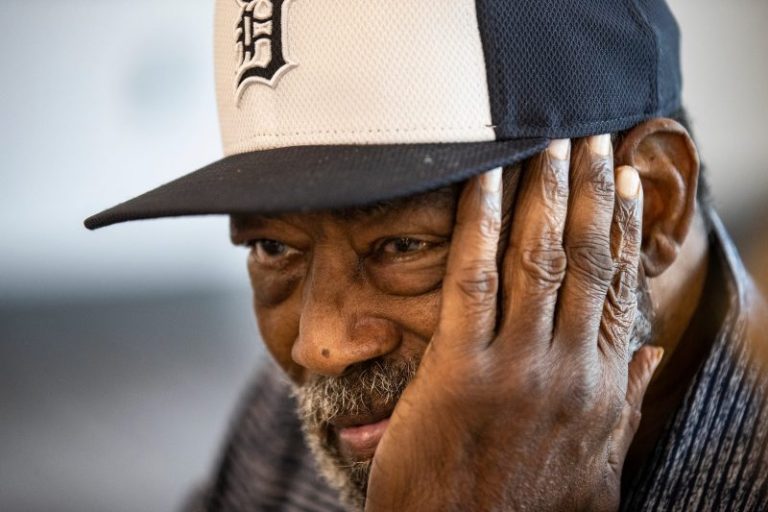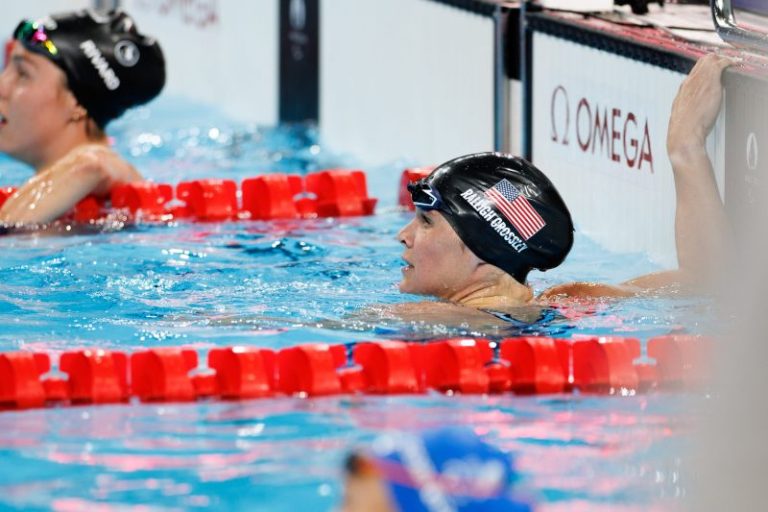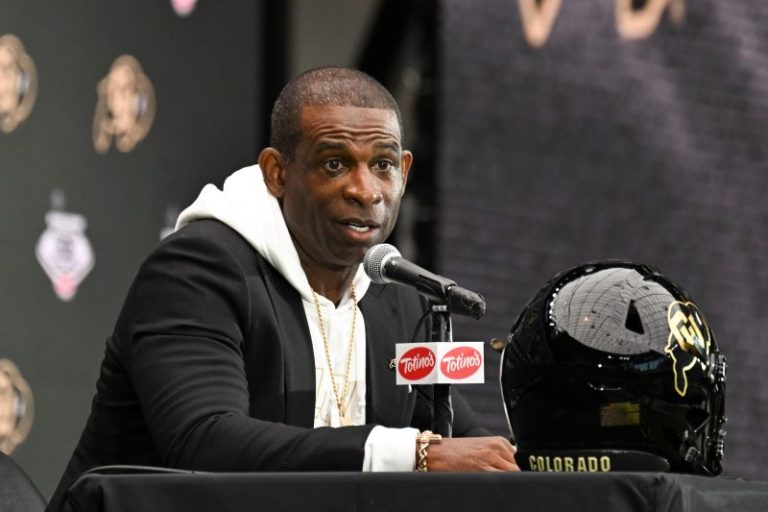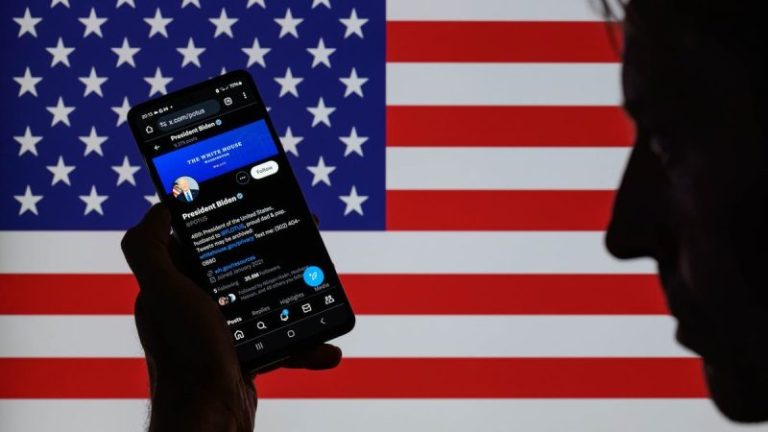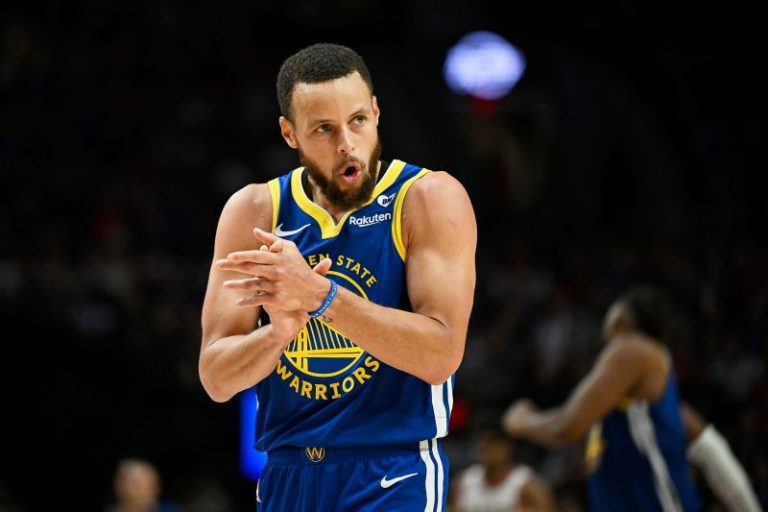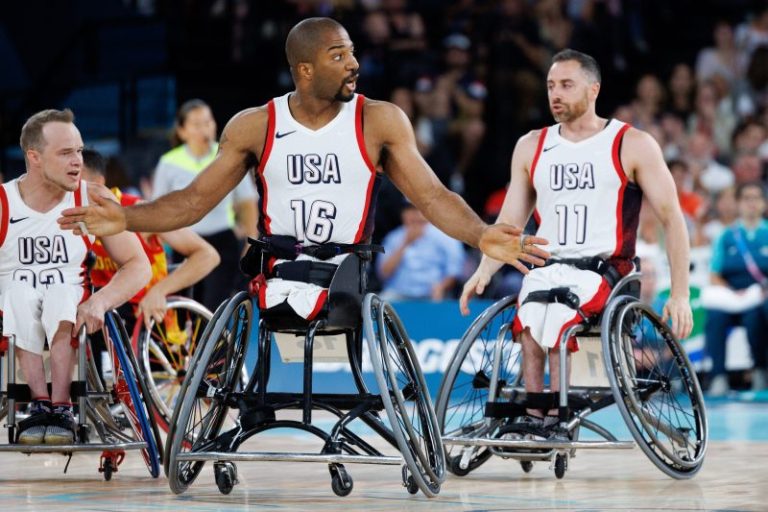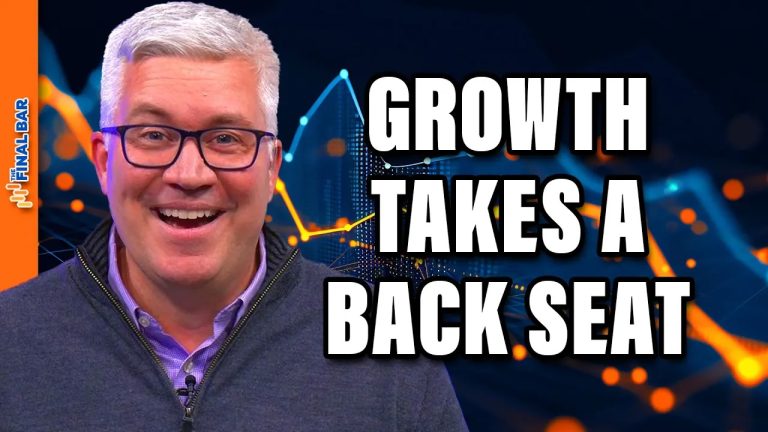CLERMONT, Fla. — In a stroke rehab center, past the security desk, down a wide hallway, inside a private room, Chet Lemon sits next to his bed strapped into a wheelchair.
He wears a yellow wrist band that reads “fall risk.”
Up on the wall, a TV is tuned to ESPN and it’s showing baseball highlights. Forty years ago, he was the star center fielder for the Detroit Tigers — a gifted athlete and an All-Star on a team that won the 1984 World Series.
But 13 strokes have left him unable to speak more than a couple simple words.
The rest is gibberish.
All things Tigers: Latest Detroit Tigers news, schedule, roster, stats, injury updates and more.
Chet cannot walk. Cannot care for himself. His son, Marcus, stands next to him, helping him get dressed. It is early May, and Chet looks at the TV with a blank stare. His eyes seem distant, like he’s not really seeing anything. But everything changes when his 26-year-old daughter, Bri, walks into the room. Chet sees her and recognizes her instantly — his long-term memory is believed to be intact, although his short-term recall is problematic — and his eyes light up.
“Dee dough!!” Chet blurts, full of joy and excitement as his voice comes alive. “DEE DOUGH.”
Bri’s appearance is a surprise. She took an early morning flight from Columbus, Ohio, where she lives. She bends down to him in the wheelchair and gives him a hug.
“Look what I got you?” Bri says, handing him a Tigers cap.
“Dee dough!” Chet says excitedly, putting the cap on his head with his left hand. His right hand refuses to participate. It curls against his body, rigid and defiant. His latest stroke hit the left side of his brain and decimated the right side of his body.
“Oh, dee-dough, dee-dough,” Chet says slower and drawn out.
Why Chet repeats that one phrase remains a mystery. He says it constantly in a variety of ways, seemingly changing the meaning by altering his pitch, volume or adding a facial expression.
He has been diagnosed with global aphasia — a language disorder that affects the way a person communicates.
“Told you I would come see you today,” she says.
She visits often.
“Dee dough,” he replies with a deeper tone.
Reading his body language, studying his facial expression and tone of voice, it sounds as if he is saying: I love you.
Most of the time, the family is left trying to guess the meaning of whatever he says.
A moment later, Gigi Lemon, his wife of 33 years, enters the room.
“Ahhhhhh!” Chet exclaims, again full of joy and excitement. “DEE DOUGH!”
Since Chet retired from the Tigers in 1990, Chet has endured a long list of health issues that include clots, dangerous internal bleeding and strokes; he has ended up at the hospital more than 300 times.
Gigi has taken Chet around the country to see different doctors, trying to get different treatments. But the latest stroke made it impossible for her to care for him alone.
“How you doing today?” she asks.
“DEE! DOUGH!” he bursts, as if to say: This is awesome, you are here, so are Bri and Marcus, and life is wonderful.
“Look at the surprise,” she says, looking at Bri.
“DEE! DOUGH!” his eyes sparkling with pure joy.
It is a close family, full of love and support.
Gigi lives at their home, about a half hour away, and works at a massive sports facility that Chet built north of Orlando, but she visits him every day. A small rotating cast of family members and friends visit Chet so often, in carefully choreographed blocks that Gigi directs and Chet is rarely alone.
“Dee dough,” he says again.
Chet and Gigi hug and she rubs his back and then his hand. She bends down and looks him in the eyes. She can still see her husband in there. Can still see ‘The Juice,’ as he was known on the baseball field, the guy who played with such flair, making great one-handed catches or robbing home runs — or jacking them himself.
“You doing OK today?” she asks.
“Dee dough,” he says quickly, as if to say: Yep, everything is fine. Way better now.
“Hey, I like the Detroit shirt they put on for you today,” Gigi says.
“Dee dough.” Clearly, Chet agrees.
He lifts his left arm, points at nothing in particular and his tone changes: “Dee dough.”
His face becomes taut, his eyes set, his tone insistent: “Dee dough!”
He wants something.
“You don’t want this in your room?” Gigi points to a tray of breakfast food.
This happens often. Chet will start saying “dee dough” in a demanding tone, and his family will be left in a scramble, trying to figure out what he wants or needs, running through possibilities.
“Dee dough,” Chet sighs, getting frustrated although it is difficult to figure out what he is pointing at, what he wants.
“You want your drink?” she asks.
She hands him a drink of water.
“Is that what you want?”
He takes a sip.
“Ahh!” he sighs in satisfaction.
The whole “dee dough” situation is perplexing to the family. Is he trying to say “water” and it comes out “dee dough”? When he says “dee dough,” does he hear “water” in his mind? The family has given up trying to figure it out and simply accepts it.
“So that hit the spot,” Marcus says.
Gigi puts on Chet’s shoes and straightens his pants.
“Dee dough,” Chet says.
This time, the meaning seems clear: Thank you. I love you.
Coming back for ’84 Tigers celebration
The Lemon family has kept Chet’s condition private for years. But now, they want his story told before the Tigers celebrate the 40th anniversary of the 1984 Tigers — an event set to culminate Saturday. They want his former teammates to know why he can’t speak and fans to understand why he will be in a wheelchair.
Because Chet, 69, will be at that ceremony — Gigi is determined of that.
“I believe Chet being able to see the fans, being able to see his teammates, being back in Detroit, I think it’ll bring back a lot of memories for him,” Gigi said. “And I think that it’ll be very nostalgic for him. Very emotional, of course.”
Gigi leans down to her husband. “You gonna go back to Detroit?” she asks sweetly, with a sing-song excitement in her voice. “We get to go to Detroit?’
“Yeah, yeah,” he responds.
It’s one of the few words he can say, although he doesn’t say it often.
“We will get to get on an airplane, and we will fly back,” she says. ‘We get to go to MotorCity Casino and hang out.”
Her goal is to get him to walk before that celebration, but she is also pragmatic. There is a second reason why Gigi wants this story out there: If Chet cannot go to the ceremony, she wants his teammates and fans to understand why.
And finally, there is a third reason: The Lemon family wants to use Chet’s story to help others, to increase public awareness about aphasia. About a third of strokes result in aphasia, and at least 2 million in the U.S. have it, according to the National Aphasia Association.
So, they have invited the Free Press into their lives, sharing their story, granting full access to explain his medical issues and situation.
“We know there’s many families out there that are struggling with the same things,” Gigi says. “We hope to set up a foundation to be able to help get more education and get more help to caregivers, to those suffering with aphasia. Because I know where I was at 2½ years ago, not really understanding. Everyone’s stroke is different. Everyone’s stroke affects your brain in different places.”
His blood issues root of problem
Chet’s journey to this moment has spanned decades.
He retired in 1990 after a 16-year career, the last nine in Detroit. A three-time All Star, Chet was diagnosed with polycyhemia vera, a rare blood disease that causes bone marrow to make too many red blood cells.
That has been the root of all of his problems.
The extra cells thicken the blood, which can cause blood clots and an enlarged spleen. So he had to go on blood thinners. But that leaves him in danger of internal bleeding.
“We’ve been to the hospital no less than 12 times a year — with some of them being extended stays — for the last 30 years,” she says. “I mean, we used to knock on wood every time we could go a month without being in the hospital.”
There have been some crazy ups and downs through this journey, like the time ESPN thought he was dying.
“Chet saw Chris Berman do his eulogy on ESPN,’ Gigi said. ‘They said Chet was dying in a Florida hospital and they showed highlights of his career. Chet said, ‘I don’t know how many people can say they know what’s gonna be like when they die but get me out of here.’ ”
Gigi has become something of an expert at diagnosing internal bleeding: “If he throws up and it’s red, the bleed is above your stomach,” she said. “If you go to the bathroom and it’s a black tarry stool, you’re bleeding in the stomach.”
Oh, she has so many stories about the bleeding. One time, he threw up in a hotel — “There was blood all over. You would think somebody was murdered in my room, it was so bad,” Gigi said.
Another time, his spleen became enlarged and “it looked like he was 9 months pregnant,” Gigi said.
Doctors removed a “7-pound spleen,” Gigi said.
But the hospital visits continued. “Something would always happen,” Gigi said. “Either he’d have a bleed, or he’d have some type of pain, or his platelets would go up, or there would be some issues, and we would end up back at the hospital.”
Despite the health challenges, Lemon stayed connected to baseball, following his true passion and started coaching kids. He guided a local high school team to a state championship and started Chet Lemons Juice, an elite travel baseball program that won several national titles and put hundreds of players into college and professional baseball —a list that includes Prince Fielder, Zach Greinke, Billy Butler, Ricky Weeks, Tim Raines Jr., Bobby Wilson, Brady Singer and, of course, current Tigers slugger Kerry Carpenter.
“Chet would say he had 70 first rounders,” Gigi said. “But the entire time that he was doing all of this, he was always sick. He’s never gotten better from the clot in the stomach, the surgeries and everything. He was always sick.”
But he kept coaching, kept working with kids, trying teach them how to play the game the right way, trying to get them into college or the pros.
“I remember him telling stories about the ’84 World Series team,” Carpenter said. “He knew baseball. I love talking to him about outfield. More than anything, it was seeing his presence in the dugout, sitting by him. He would just sit on the bucket right there at the edge of the dugout and just listening to him talk the game, whatever’s going on.”
Chet would take his players on college tours, riding a bus for 11 days around the South, trying to get them scholarships.
He’d be at practice or games, no matter how sick.
“He was there sunup to sundown,” Gigi said. “I mean, there’s times he got out of the hospital and he told the doctors he had to go, and he had still an IV in his arm, and they had to cover it up, because he said, ‘This kid has a lot of colleges and scouts coming to see him, and I need to call his game.’ ‘
There were times when his feet were so swollen he couldn’t stand — “His legs would blow up,” Gigi said — and Chet would be in the dugout coaching with his feet in buckets of ice.
He should have died several times. “They told us Chet is a medical miracle,” Gigi said. “There’s no reason he’s walking around today.”
An endless cycle of hospital visits
Chet’s blood disease has been well chronicled, dating to his playing days. But the family has kept the strokes private until now.
He suffered his first one in 2017, and it started an endless, exhausting cycle: He would have a stroke, go through rehab, be on blood thinners and have a gastrointestinal bleed, followed by a trip to the hospital, followed by more clots, more strokes, followed by lengthy rehabs and more strokes.
Each stroke seemed to get worse. Each recovery and rehabilitation kept getting harder.
Chet suffered 13 confirmed strokes, but Gigi suspects there were actually far more smaller ones.
Gigi would take video of Chet to record his progress during the rehabilitations but also as a way to see if he had another stroke.
“We go back and we look and see what he was doing a month ago, what he was doing two months ago,” Gigi says. “Then I’ll call the kids and I’ll say, ‘Hey, I think Dad had another stroke. Tell me what you think.’ ”
Sometimes, they were looking at small clues — Chet would be standing with his cane and not put his foot on the ground.
But other times, it was obvious. One day, Chet was standing by the sink with a cane and Gigi put toothpaste on his toothbrush. “He wanted to brush his hair with it,” she said. “So then I called the doctors at Mayo, and they said, ‘Bring him.’
“They did a CAT scan and said, ‘Yeah, there’s a new infarction.’ So then we would have to do the rehab all over again.”
In the fall of 2020, Chet tried to say something but nothing came out.
“We go to the hospital,” she said. “He had a stroke. And then he went to speech therapy and he was fine.”
On Nov. 6, 2021, Gigi made a video of him talking, just like always.
“You can talk to the kids,” Gigi says in the video.
“I’m getting better,” he says and smiles. “I think.”
“You feelin’ better?” she asks.
“Yes,” he says clearly.
It’s the last recording they have of his voice.
Shortly after, he had another stroke and hasn’t spoken since. He has been diagnosed with global aphasia — the most severe form.
“We believe his memory and everything’s intact,” Gigi says. “But he can no longer speak.”
But that wasn’t the end of his problems.
He had another stroke in August 2023, which stole his ability to walk.
The root of the problem
Why was he having so many strokes?
Doctors found a massive clot in his carotid artery.
“The pieces were just breaking off,” Gigi says. “And every time a piece would break off, it would travel through his head and get stuck somewhere, and that’s when he was losing more function.”
Surgeons removed part of the clot and put a stent — a small mesh cylinder — in his carotid artery, kind of pushing the clot to the side; he hasn’t had any strokes since.
After talking to countless doctors and examining the brain imaging results that show where he has suffered damage, the family has come to accept that his speech will never return.
“It just stinks, the card you’re dealt sometimes, but he’s never really given up,” Bri said. “And he’s very inspirational. I mean, everything my dad does is very inspirational. And I’m just like, wow, he just keeps fighting, if he could still speak, I bet he would still be coaching baseball.”
Communicating through music
In the stroke rehab center, Bri stands next to her father.
“You want some music?” she asks.
Chet might struggle to communicate through words but his family has found they can connect with him in a far deeper way through music.
“Here, I get to go first today,” she says, scrolling through her phone.
During visits, the family plays him music; they have turned it into a good-natured competition.
If Chet likes a song, he starts to dance in his wheelchair, swaying back and forth, his facial expression letting everyone know his feelings.
Get a thumbs-up and you get to pick another song.
But if he doesn’t dance, if the song flops, you get a thumbs-down and the next person gets to pick a new song.
On this day, Bri starts off, playing Paul Russell’s “Little Boo Thang.”
“Yeah, yeah,” Chet says, dancing in his chair. “Dee dough!”
Bri holds her cellphone, bopping her head to the beat, dancing in place.
Gigi scrolls through her phone. “I got you,” Gigi says. “This is a good one.”
As the music begins, it’s clear that Chet loves this song, and he starts dancing in his chair, nodding his head, grooving his shoulder. “Yeah, yeah.” His eyes squint, as if he is lost deep in song. “Dee dough!”
Bri is dancing and singing, and Gigi takes Chet’s hand and they start dancing together, Chet still tied to the wheelchair. “Dee dough,” he laughs, smiling hard.
Gigi and Chet lock eyes. She never seems to take her eyes off him, trying to read his face, trying to read his eyes. It’s the only way they can communicate.
“She’s one of the strongest women I’ve ever seen,” Marcus says. “My mom has never — never — faltered and never swayed. She’s by my dad’s side all the time. She loves and genuinely cares for my dad. It’s amazing to see a love like that.”
Seeing the pro athlete return
Time for some physical therapy.
Marcus pushes his father in the wheelchair through the doorway.
“Deeeee dough!” Chet says, excitedly.
Everybody breaks out laughing. “Deeeee dooouuughhh!” he says, stretching out the words.
They get to a large workout area and a therapist tries to lift Chet onto an elliptical bike. “Dee dough,” he says.
“Lean forward and reach here,” the therapist says. “We practice this every day.”
“Yeah!” he says.
Even though they don’t believe his speech will return, they are hoping he will be able to walk again. Based on his past, it’s possible. Every time he has had a stroke, he has fought back and learned to walk again through rehab.
“One, two three,” the therapist says, lifting him by using the belt around his waist. “You are very strong.”
“Dee dough,” he says.
He grunts, slipping into the elliptical chair, and she helps him put his feet on the pedals. “Up, up, up.”
It is a machine that works both the legs and the arms at the same time.
Chet starts pedaling, pumping both his legs and using his left hand. His right hand remains rigid and defiant at his chest.
“Dee dough!” he says.
He starts to pedal hard, his legs churning.
“I got a song for you, too, Dad,” Bri says.
“Yeah, yeah,” Chet says. “Yeah, yeah!”
As he keeps pumping his legs, he falls into a deep focus and determination, and it’s like the professional athlete comes out. He loves to train, loves to do therapy, loves working up a sweat. It’s like it awakens something deep inside him.
“Yeah!” he says, slowly.
Trying to spark old memories
After the therapy, they go to a large, bright community room.
They scroll through old videos of him talking to the media.
“Hey, Dad, do you remember this?” Bri asks.
It’s 54-minute video she put together from the 25th anniversary celebration of Chet Lemon’s Juice, the baseball program he started.
The video starts off with some of his MLB highlights.
“Is that you?” Gigi asks, looking at the video as he robs a home run.
“Dee dough,” he says. “Yeah.”
Chet played 16 years in the majors for the Chicago White Sox and Tigers.
He was known as one of the best center fielders in the game — he led the American League with 512 outfield putouts in 1977. But he was also a gifted hitter. He is one of 164 players in baseball history with at least 200 homers (215), 1,800 hits (1,875) and a .270 batting average (.273), according to Baseball Reference.
“You hit a home run right there,” Gigi says.
It’s not so much basking in glory days. It’s more hoping the images of the glory days will stimulate his brain in a new way.
She rubs his back.
“That’s from the World Series,” Gigi says, watching the highlight. “That was you. Is that The Juice?”
At the end of the video, there are several wonderful tributes to Chet from some of his former players.
Matt LaPorta, a first-round pick who played four seasons for Cleveland: “You taught me how to be a professional baseball player. How to handle myself, how to prepare mentally and physically for the game; and how to get not too high or too low.”
Nick Gordon, another former first-round pick with four MLB seasons, who’s now with Miami: “I got to meet some wonderful kids in this organization… ”
Sean Burnett, a left-hander drafted in the first round who played nine years in the MLB: “I most want to thank you for what you’ve done on a personal level, sitting around and having dinner and talking baseball and your life lessons. You’ve taught me stuff I’ve carried on through my career and will hopefully pass down to my children.”
Brad Miller, who played 11 MLB seasons: “I think it’s pretty cool how someone who spent their whole life playing baseball at the highest level, after he was done, he devoted his life to sharing that gift with others and teaching the game and influencing us. … Like you always said, we bleed Juice red. I think it means your qualities rubbed off on us. We played the game the right way, because that’s what you taught us.”
Brady Singer, a first-round pick who has pitched for the Kansas City Royals for five seasons, sits with his parents on the video.
Brett Singer, Brady’s dad, says: “I could talk for a week, a month about you; you’re a legendary man. We thank you for everything.”
Brady takes a turn, talking to Chet through the video: “I just want to thank you for the guidance and everything you’ve ever done for me and the good times we’ve had.“
Brady has his arm around his mother, Jacquelyn Singer, who is wearing a Juice T-shirt. Jacquelyn says: “You know I love you, coach Chet. I love Gigi and the whole organization. We sure appreciate you.”
Finally, Marcus ends the video: “You built something that was more than playing a game. You helped us build a family and our family has expanded into this unbelievably awesome, huge Juice family. And that was you, Dad. You built that. … Dad, I love you.”
Marcus was selected by the Texas Rangers in the fourth round of the 2006 MLB draft. He played in the minor leagues for 11 seasons — including, at one point, playing in the Tigers organization — and he was coached by some of Chet’s former teammates, such as Lance Parrish. But Marcus never got to the majors; he retired and joined his father coaching the Juice.
Marcus continued: “You’ve been through so much and overcome so much and I don’t know how you do it. Every single day I see you makes me a a stronger and better man. Because you never give up. You never quit and you always give back. You are a selfless man. And I love you for it. You hear people say they want to be like their heroes, so I wanna be like you, Dad.”
Following in Chet’s footsteps
That night, Marcus holds a baseball practice in the Big House — a massive indoor sports complex that Chet built about 20 miles north of Orlando. Chet was involved in every aspect of designing the facility, picking the color scheme, wanting the design to be filled with interesting angles. He named it the “Big House” not after Michigan’s football stadium, but because he wanted it to be a place where families hung out together.
Marcus has started a new program at the Big House. He is running MLB — Marcus Lemon Baseball, starting with a group of 11-year-olds. When they get in high school, they will resurrect the Juice name, when they are worthy to wear those uniforms.
“I want them to build character as young me,” Marcus tells a small group of parents whose boys have been invited to join the new team. “That’s what I learned playing for my dad.”
The facility is simply beautiful and massive, spread over three floors. It has nine basketball courts, 16 volleyball courts, a full-size baseball infield, 10 batting cages, 16 pickleball courts and a fitness center.
“It’s incredible,” Carpenter told me in August. “I texted Marcus and I said, ‘Can I come in over Christmas?’ It has everything I need.”
It has everything almost anybody needs. It is 162,000 square feet — by comparison, a typical Walmart Supercenter is 178,000 square feet. In some ways, the entire facility is a one-stop shop for youth sports. In addition to normal fields and courts, like the ones you might see at similar places like Total Sports in Wixom, the Big House has so much more — a restaurant, a beauty salon, a barber shop, a fitness center, a day care, a waxing room, a massage center, a store, a car-detailing area and a school.
“We thought about all the things that we didn’t get done when we were at our kids’ sporting events,” Gigi says. “We always said that, ‘Boy, I don’t have time to wash my car.’
“So we got a car detailing area here.”
The newest addition is a school on the second floor.
“Chet said, ‘I want parents to be able to drop their kids off at the Big House, prepare for their SATs, ACTs get whatever type of tutoring they need, and then also play their sports,’” Gigi said. “So, we built classrooms, we have a theater here, we have a computer lab, we have our offices there, and we have a quarter-mile track on the second level.”
Now, Gigi runs the place along with a small staff that feels like the extension of her family.
Massive youth tournaments are held every weekend, usually drawing more than 1,000 athletes with thousands of spectators constantly streaming through the front door. Usually, it’s youth basketball and volleyball tournaments, but they have ventured into pickleball. “And we got some cheerleading opportunities coming up,” Gigi says.
Between the two main gyms, Chet asked the architect to build suites that people can rent to hang out with their teams. One of those suites is Chet’s room — his special space with leather furniture and a big-screen TV with windows on both sides to watch the games.
But he rarely goes in it anymore.
Coming back to Detroit — hopefully
Two months ago, Gigi moved Chet out of the stroke center; now he is receiving round-the-clock care in a private setting.
“I’ve hired seven caregivers, so we take care of him seven days a week, 24 hours a day,” she said.
Chet is on Medicare but it doesn’t cover all Gigi’s expenses. “I tell everyone you prepare to live,” Gigi says. “You have your savings plans, you put your money away, you prepare to die, you have a will, but you never prepare to be disabled.”
For years, Gigi took Chet around the country, going to different clinics, researching different therapies. “Trying to fix him,” she says.
But she has come to a new stage.
“I got with the kids and we decided, ‘You know what, we’re not going to try to fix him,’ ” Gigi says. “We just have to learn to live in his world now, in the way that he functions, and he operates.”
Not much has changed over the summer.
Chet still cannot walk, cannot talk. And his right hand still doesn’t function.
“He’s doing as well as can be expected,” Gigi says in early August. “He’s in great spirits. We brought out dessert last night. It was cheesecake with fresh fruit. We got some extra ‘dee doughs’ in there. So again, none of us know what it means, but he’s happy.”
More than anything, they try to make him happy, keeping him surrounded with close friends and family. Every Wednesday night, they hold a party for Chet. “Last night was a spaghetti dinner,” Gigi says. “Last week, we did island food. So we’re trying to get him in the mode of being around people again.”
Recently, Gigi got Chet a wheelchair-accessible van, and more than anything, he just loves going for rides and looking out the windows. Marcus has been reading Chet books and makes heart-warming videos of his father; Bri has been making a website for the Chet Lemon Foundation — it went live earlier this month.
They plan to fly to Detroit on Friday, Aug. 30, for the 1984 Tigers celebration. “We’re rocking and rolling,” Gigi says. “Marcus is coming. Bri is coming, yeah, we got it going on.”
More than anything, Gigi wants Chet to go to Detroit and celebrate with his old teammates.
To hear the roars of the crowd.
To feel the love of the fans.
To be around Gibby and Peaches, Tram and Lou.
Hoping it sparks something.
Hoping it brings him pure joy.
“At Mayo, they talk about the quality of life,” she says. “Nobody knows how much time you have but we want to make sure while you’re still here, you have a great quality of life.”
So, assuming nothing changes, assuming his health holds, Chet Lemon is coming back to Detroit.
He will look different; he will sound different.
But deep inside those eyes, you can still see the Juice.
Contact Jeff Seidel: jseidel@freepress.com or follow him @seideljeff.

